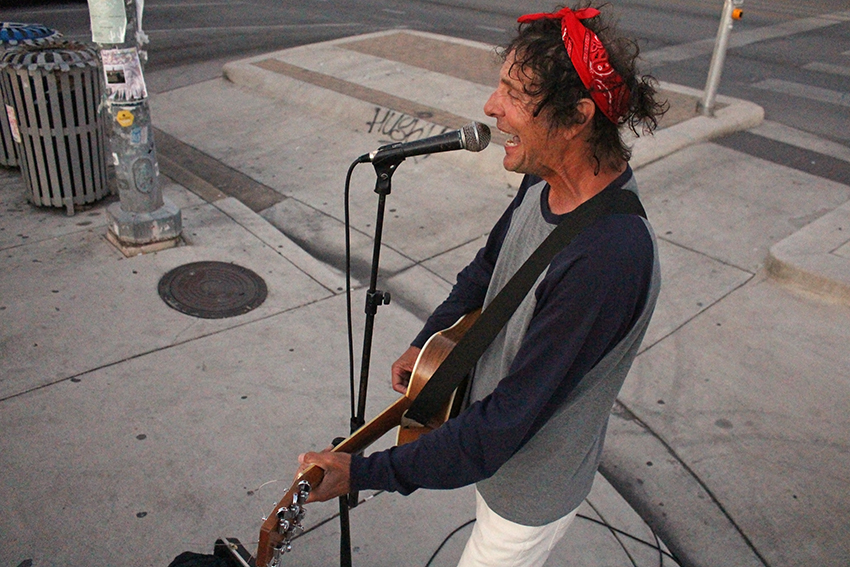Busking. Not an ancient farming practice, not profanity, but the term for something else entirely — street performance.
From magic acts to solo musicians, buskers make money attracting the attention of passersby and hopefully holding it for positive reasons. There is, however, the risk of attracting negative attention from authorities. For Austin buskers, this negative attention can result in fines and a misdemeanor charge for those using sound amplification equipment or performing outside of areas designated by the city. In a place like Austin, allegedly live music capital of the world and a pretty pro-weird place, it would seem logical that street musicians would feel welcomed instead of limited.
Some, such as Rob Cook, better known as Washboard Tie Guy by those who have seen him performing as a percussionist on South Congress and in cities around the country, have found an established place in Austin busking in spite of the ordinances that have made it difficult for some artists.
“I’ve had a few run-ins with authorities wanting permits, especially for using an amplifier,” Cook said. “But usually people don’t enforce that rule.
Busking is a legal gray area a lot of times, because laws and ordinances may forbid something, but then that rule isn’t enforced strictly. Now that I’ve made a place for myself in this community, I don’t have many problems with complaints or getting shut down.”
However, other Austin buskers find that the city’s regulations limit their creativity. For New Orleans-based musician Donovan Cline, it’s the regulated attitude toward music that makes Austin a bad town for busking.
“I thought Austin was going to be this great music town when I first came here. But I realized that the police will shut you down pretty quickly,” Cline said. “In other cities you can get permits to play, and that’ll keep you from getting busted, but the process in Austin is very unclear.”
In Cline’s experience, South Congress is more hospitable to musicians than other areas such as 6th Street, where police have told him to pack up his guitar and move on. Cline said police told him to exit the area because buskers aren’t allowed after 10:30 p.m. on the lively street.
“Busking is smiled upon in New Orleans,” Cline said. “People go to see the performers because there’s a culture of musicians playing seriously and being taken seriously. This is my job. I’m not out here panhandling. People can give me money if they like my work or not. But that’s not something the police should keep me from doing.”
Austin has tried to remedy the problems arising from its busking laws recently through their busking pilot program, which would designate performance spots and pay musicians by the hour. However, it does not protect buskers playing in nondesignated spots around town.
With South Congress’ numerous outdoor patios and open-air eateries, noise pollution is a concern when it comes to busking. Corinne Karr, an employee at the Hey Cupcake food trailer, said musicians playing for hours at a time can become monotonous.
“If I’m here on a long shift and someone is playing on the corner all day, I don’t have anywhere I can go to get away from that,” said Karr. “There was a guy playing polka music out here. He wasn’t bad. But any one genre for eight hours is a lot, especially polka.”
According to Karr, the problem of noise pollution applies more to people working on South Congress. For pedestrians and customers, on the other hand, buskers are an expected and treasured part of the SoCo scene.
“Artists do magic tricks and little performances all up and down Congress, and people love that,” Karr said. “If you’re a patron, I think it’s part of the hustle and bustle that people want when they come here.”















